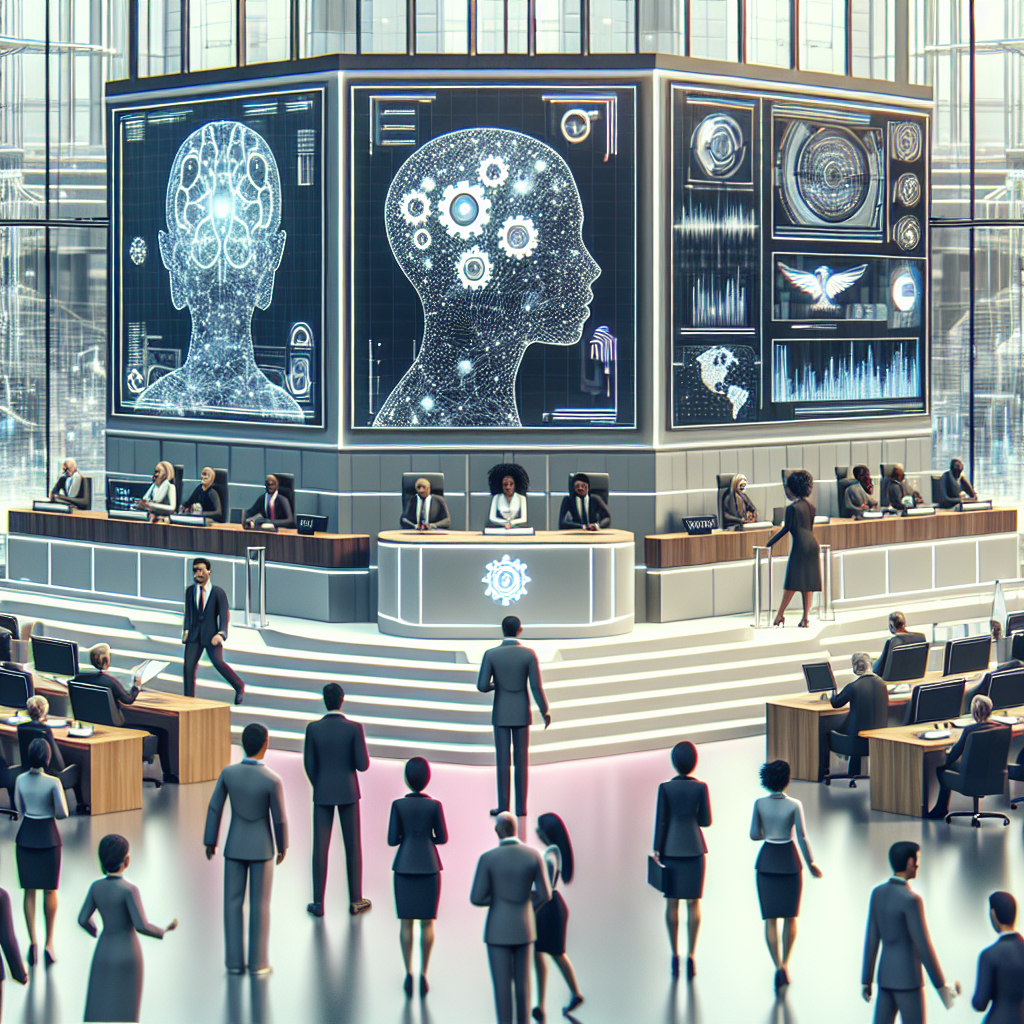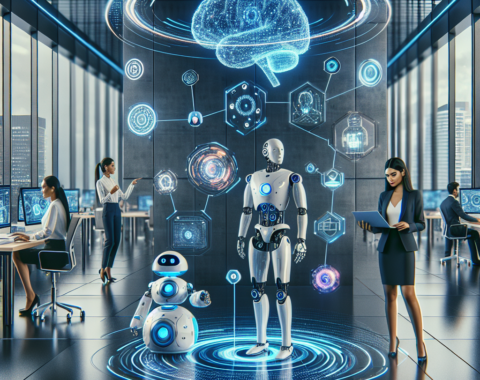
What to Expect When Congress Takes on AI in 2025
As the conversation around artificial intelligence (AI) continually expands, the year 2025 is set to be monumental for legislative attention in the United States. As AI becomes more entrenched in daily life—impacting everything from healthcare to transportation—Congress is expected to tackle the multifaceted challenges and opportunities that AI presents. Here’s what we can anticipate when Congress officially takes on AI legislation in 2025.
Why 2025 is a Pivotal Year for AI Legislation
AI technologies continue to evolve at a rapid pace. From self-driving cars to intelligent personal assistants, AI is revolutionizing numerous sectors. However, with innovation comes ethical, social, and economic issues that need governance. The potential consequences of not regulating AI could be profound, encompassing everything from privacy concerns to job displacement.
Growing Public Concern
Public concern has been a significant catalyst for the expected legislative focus on AI. Issues like data privacy, ethical AI deployment, and the potential for surveillance states have alarmed citizens and experts alike. By 2025, these concerns are expected to reach a boiling point, necessitating substantial policy responses from Congress.
The Role of Industry Giants
The tech industry is a powerful driver of economic growth, and its leaders are increasingly calling for clear guidelines. Companies like Google, Microsoft, and IBM have extensive AI research and development investments. These corporations endorse creating a standardized rulebook that balances innovation with ethical responsibility.
Anticipated Areas of Legislation
While it is challenging to predict the exact contours of AI legislation before it happens, the following areas are likely to become focal points:
1. Data Privacy and Security
- Consumer Data Protection: One of the critical areas of concern is how AI systems handle personal data. Expect Congress to introduce comprehensive data privacy laws requiring companies to disclose how they use consumer data.
- Data Breaches: Cybersecurity measures will be essential, ensuring that AI systems are robust against hacking and misuse.
2. Ethical AI Deployment
- Bias and Fairness: AI algorithms have been shown to exhibit biases, often reflecting or even amplifying societal biases. Look for legislative efforts aimed at transparency, promoting fairness, and eliminating discriminatory practices in AI systems.
- AI in Law Enforcement: The use of AI by law enforcement agencies can be both a tool and a threat. Congress is expected to put guidelines in place to ensure ethical use while protecting civil liberties.
3. Economic Impacts
- Job Displacement: Automation through AI is set to replace certain job categories. Congress may consider funding for reskilling and upskilling programs to ease the workforce transition.
- Taxation and Regulation: There could be discussions on levying taxes on AI-driven businesses to redistribute wealth and to ease social imbalances caused by automation.
4. Innovation and Research
- Investment in AI Research: To maintain global competitiveness, Congress might increase funding for AI research and development initiatives.
- International Collaboration: Given the global nature of AI technology, expect Congress to discuss international partnerships for AI development and regulation.
Challenges in Crafting AI Legislation
While the imperative for AI legislation is clear, accomplishing it will be no easy feat. Here are some of the significant hurdles Congress is likely to encounter:
Understanding Complex Technologies
AI is a heterogenous field comprising various technologies, including neural networks, natural language processing, and machine learning algorithms. The technological complexities may create a knowledge gap between tech experts and policymakers.
Balancing Innovation and Regulation
Regulating a fast-evolving field like AI requires a delicate balance. Congress will need to ensure that legislation does not stifle innovation while protecting public interests. Fine-tuning this balance is likely to be a key challenge.
Partisan Differences
- Diverse Political Views: As with any policy, bipartisan support will be crucial. Different stakeholders, including government bodies, tech companies, and civil society, will have their priorities, necessitating collaborative dialogue and compromise.
- Lobbying: The tech industry spends millions on lobbying, which may influence the legislative process. Congress will need to navigate these pressures to create fair and comprehensive AI policies.
Recommendations for Effective Legislation
Engage Stakeholders
For meaningful AI legislation, engaging diverse stakeholders is crucial. Congress should consult tech experts, ethicists, consumer advocates, and the public during the drafting process.
Future-Proof Frameworks
AI is continuously evolving, and legislation needs to be adaptable to technological advancements. Implementing a periodic review process could ensure laws remain relevant in the face of rapid innovation.
International Standards
Global collaboration is essential for AI development. Congress should aim for harmonized standards and policies that facilitate international cooperation while respecting domestic priorities.
Final Thoughts
As Congress prepares to tackle AI legislation in 2025, the outcome will play a pivotal role in shaping the future of AI in the United States and, by extension, globally. Striking the right balance between encouraging innovation and ensuring ethical practices will be essential. With comprehensive stakeholder involvement and a forward-thinking approach, Congress has the opportunity to set a precedent for the world to follow. Brace yourselves for a transformative year in AI governance; the stakes have never been higher.




